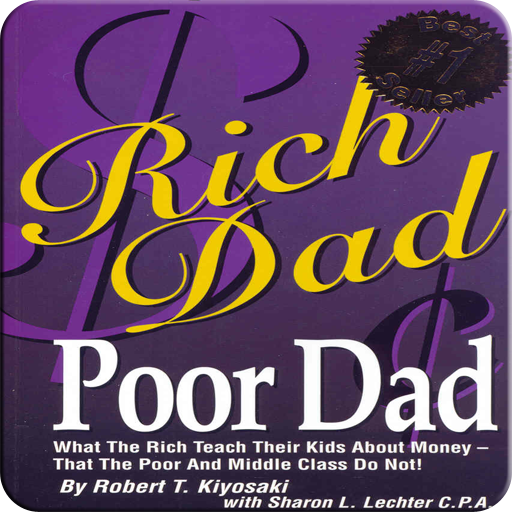(单词翻译:单击)
I remember when I drew the diagram for my dad showing him the direction of cash flow.
我还记得我画了下面这张图向爸爸说明他的现金流。
I also showed him the ancillary expenses that went along with owning the home.
我也向他指出了拥有房子后带来的附属支出。
A bigger home meant bigger expenses, and the cash flow kept going out through the expense column.
房子越大支出就越大,现金就会通过支出不断地流出。
Today, I'm still challenging on the idea of a house not being an asset.
今天,我仍在向"房子是资产"这个观念挑战。
I know that for many people, it is their dream as well as their largest investment.
我知道对许多人来说,房子是他们的梦想和最大的投资
And owning your own home is better than nothing.
而且拥有自己的房子总比什么都没有强

I simply offer an alternate way of looking at this popular dogma.
但我仍想用另一种方法来看待这一教条。
My wife and I would love a bigger, more flashy house to impress the Johnsons.
即使我和我妻子要买大而豪华的房子
But we know it is not an asset. It's a liability since it takes money out of our pocket.
我们也很清楚那不是资产,而是负债,因为它把钱从我们口袋中掏走了。
So here is the argument I put forth.
因此我提出这个富有争议的观点。
I really don't expect most people to agree with it.
我并不指望所有人都同意。
Because your home is an emotional thing and when it comes to money, high emotions tend to lower financial intelligence.
因为房子还有感情层面上的意义。此外,对于钱的热衷也会降低财商。
When it comes to houses, I point out that most people work all their lives paying for a home they never own.
对于房子,我要指出大多数人一生都在为一所他们从未真正拥有的房子而辛苦地工作。
In other words, most people buy a new house every so many years,
换句话说,大多数人每隔几年就买所新房子。
each time incurring a new 30-year loan to pay off the previous one.
每次都用一份新的30年期的贷款偿还上一笔的贷款。
Even though people receive a tax deduction for interest on mortgage payments,
即使人们住房按揭贷款的利息是免税的
they pay for all their other expenses with after-tax dollars,
他们还是要先还清各期贷款后
even after they pay off their mortgage, then their property taxes.
才能以税后收入支付各种开支。
My wife's parents were shocked when the property taxes on their home went to $1,000 a month.
当我的岳父岳母知道他们每月要为房子缴纳的财产税涨到1000美元的时候,简直被惊呆了。
This was after they retired.
他们已经退休了。
So the increase put a strain on their retirement budget, and they felt forced to move.
这笔税款无疑使他们的日子很紧张,他们时常感到不得不搬出房子了。
Also, houses do not always go up in value.
房子的价值并不总是在上升。
I still have friends who own a million dollars for a home that would today sell for only seven hundred thousand.
1997年,我的一位朋友有一所价值100万美元的房子,而今天这所房子在市场上只值70万美元了。
Finally the greatest losses of all are those from missed opportunities.
最大的损失是致富机会的损失。
If all your money is tied up in your house,
如果你所有的钱都投在了房子上
you may be forced to work harder because your money continues blowing out of the expense column,
你就不得不努力工作,因为你的现金正不断地从支出项流出
instead of adding to the asset column
而不是流入资产项
the classic middle-class cash-flow pattern.
这是典型的中产阶级现金流模式。
If a young couple would put more money into their asset column early on, their later years would get easier.
如果一对年轻夫妇能够早点在他们的资产项中多些投入,他们以后的日子就会过得轻松些。
Especially if they prepare to send their children to college.
尤其是他们准备要把孩子送入大学。
Their assets would have grown and would be available to help cover expenses.
他们的资产会不断增长,自动弥补支出。
All too often, a house only serves as a vehicle for incurring a home-equity loan to pay for mounting expenses.
通常情况下,买房子只不过是为了取得抵押贷款以支付不断攀升的开支。


